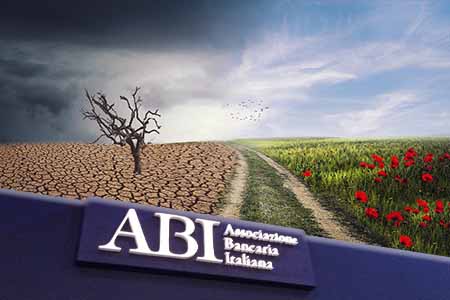Banks strengthen controls on risks associated with climate change and the potential impact of these on the bank's organization and on corporate clients
This is what emerges from the latest survey conducted by ABI, the Italian Banking Association, in collaboration with SCS Consulting, on the Non-Financial Statements (DNF) published in 2022 compared to the activities carried out in 2021 by banks representing 95% of the banking world in Italy, in terms of total assets. The analysis, carried out as part of the latest BusinEsSG DNF survey, which ABI dedicates to the integration of the environmental, social and business management dimensions in banking activities (ESG acronym from the English Environmental, Social and Governance), intends to outline the main areas and related approaches communicated and reported by the banking sector in Italy.
85% of the banks considered in the analysis provide information on climate-related impacts on their business model. From the point of view of governance, i.e. process management and control, 75% attributed specific responsibility on climate change issues to at least one corporate body or other managerial bodies. The study also highlights the growing commitment of banks to contain direct greenhouse gas emissions, i.e. those generated by the banks themselves and whose source is owned or controlled by them, and indirect, i.e. those connected with the performance of banking activities . In particular, 67% of the banks in the sample defined quantitative objectives on climate change relating to direct emissions and 41% integrated into their remuneration system incentives linked to actions connected with the fight against climate change.
Subscribe to the PRP Channel newsletter
EU taxonomy, the classification of sustainable activities
In line with the reporting obligations established by the European regulation on the European 'Green' Taxonomy, which establishes a unified classification system for sustainable activities, in 2022 (with reference to data relating to 2021), the banks that publish the Non-Financial Statement have for the first time disseminated information relating to the presence in their portfolios of economic activities included in the regulation itself. These are activities which – if they meet a series of technical criteria and contribute significantly to the achievement of EU climate change mitigation and adaptation objectives, without harming other environmental objectives – are considered sustainable under the legislation from the point of view of mitigation and adaptation to climate change. The survey also tended to investigate the point of view of the banks with respect to the implementation of this process, from which emerges, in particular, the need for greater availability of data relating to business customers.
